14 Gendered Generic
EXH - RES
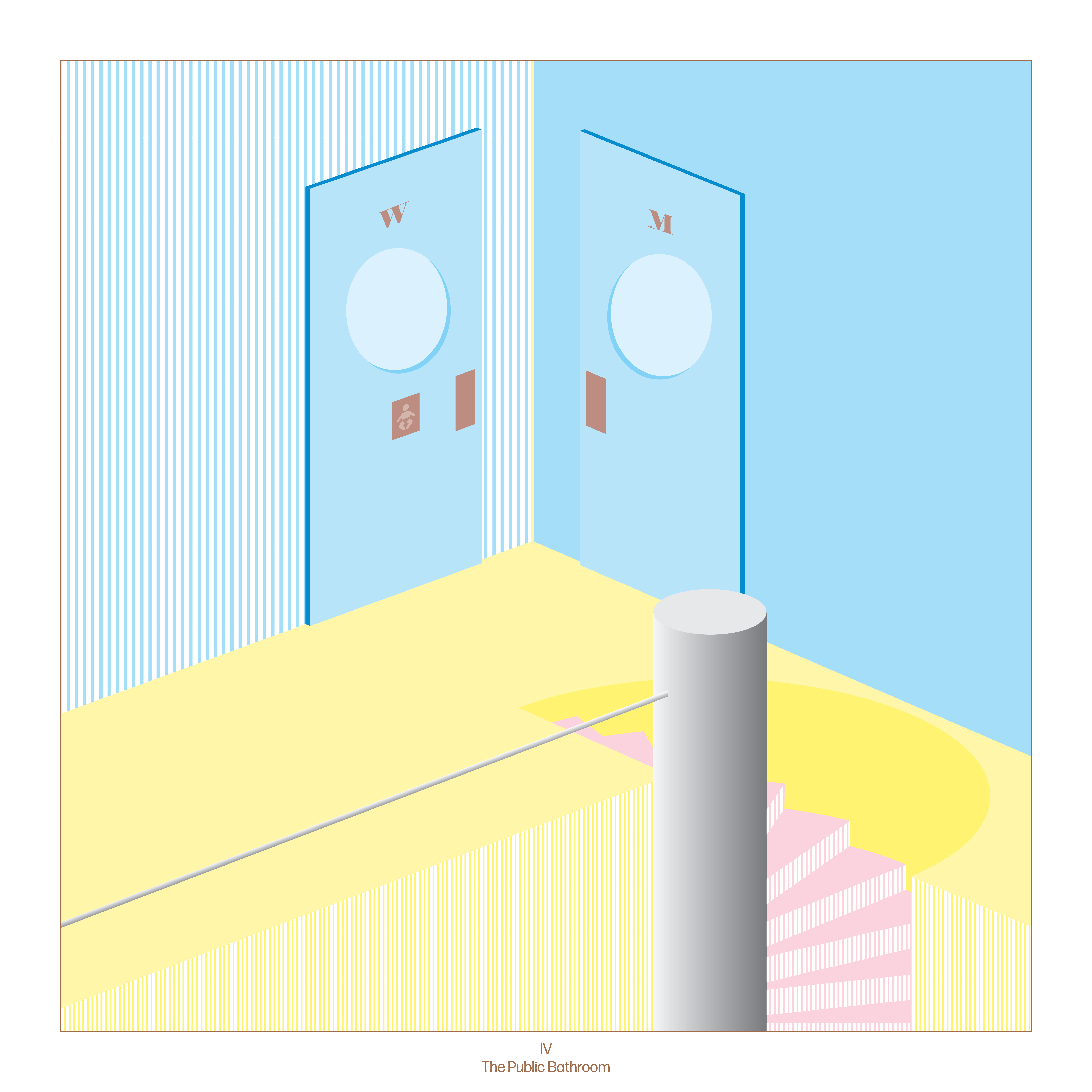
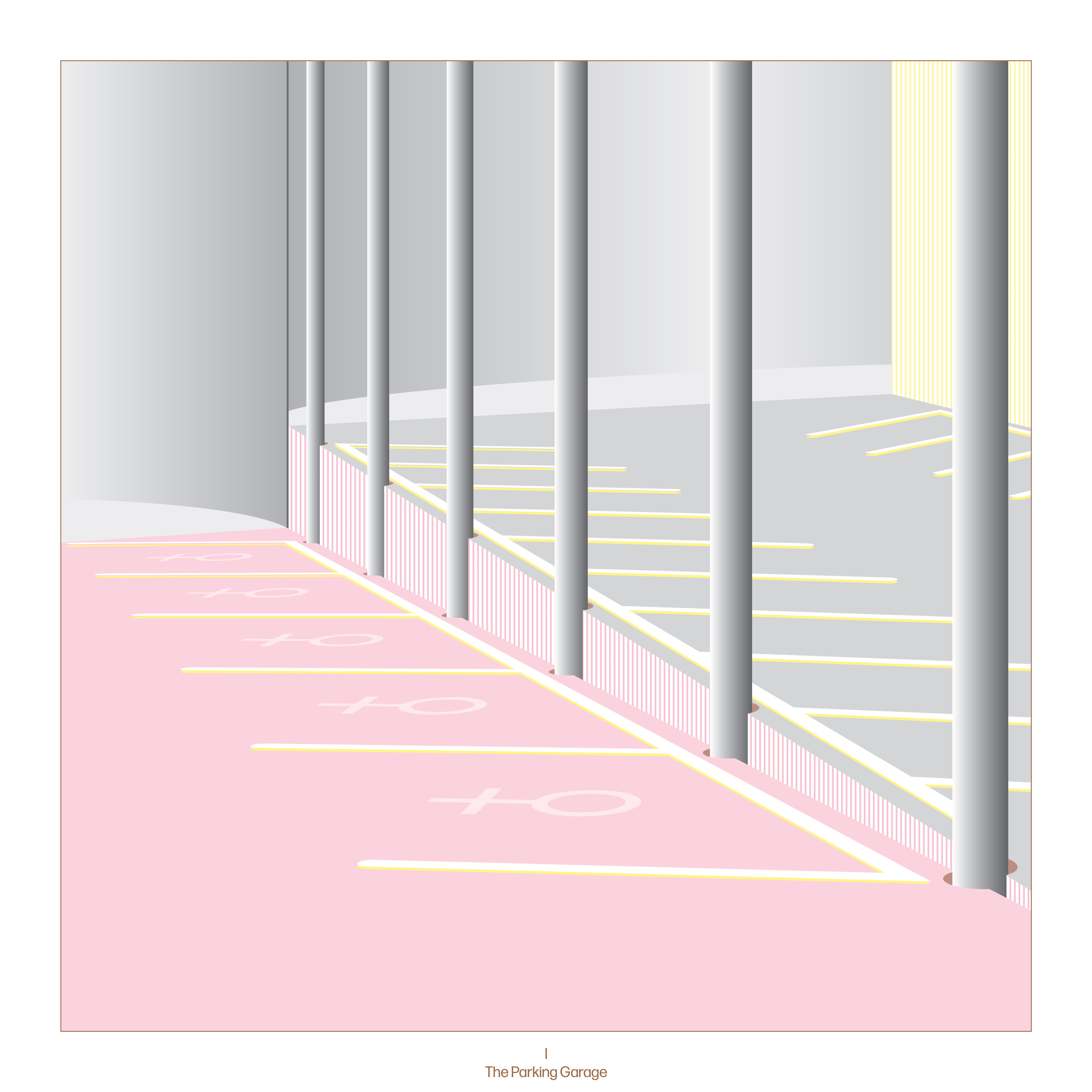
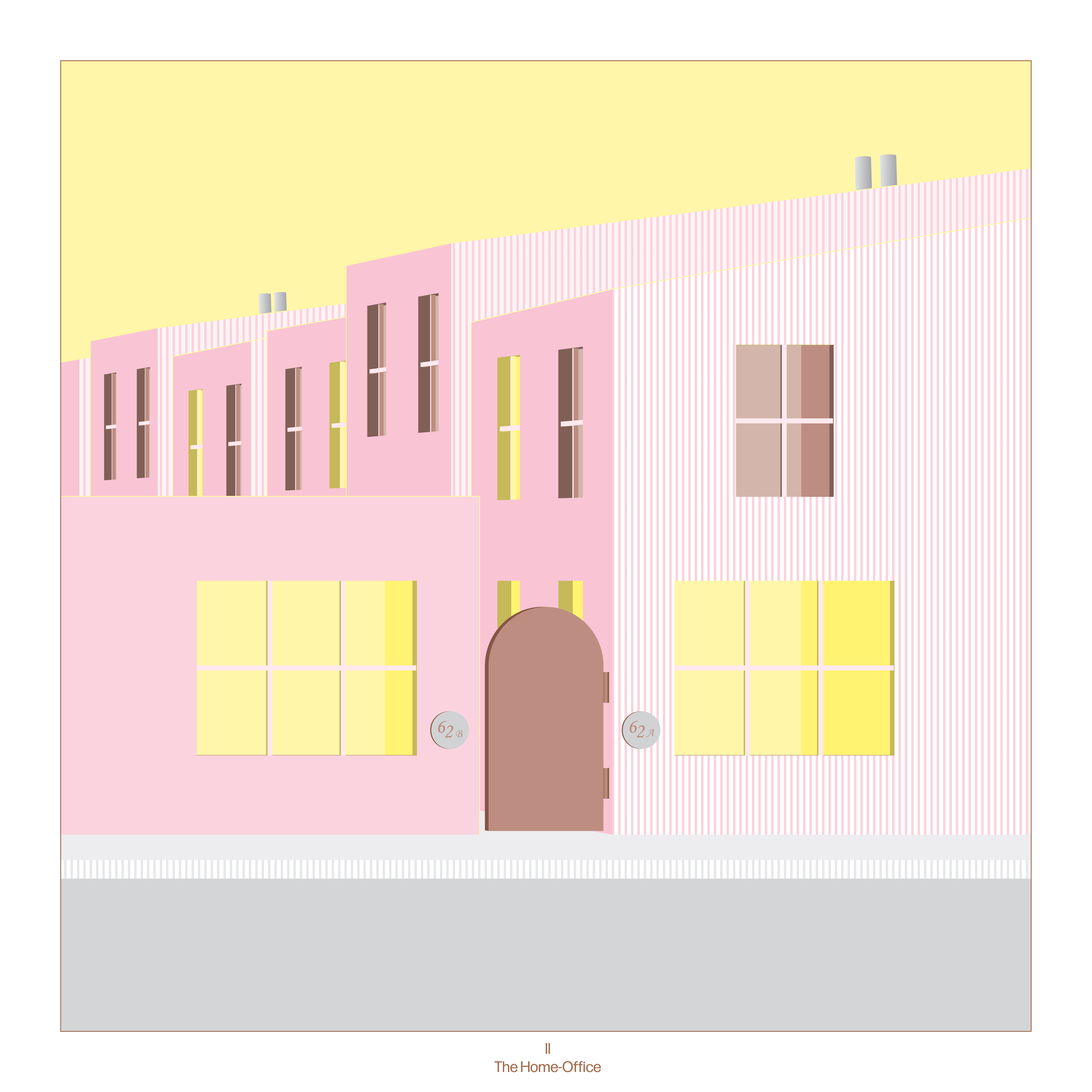

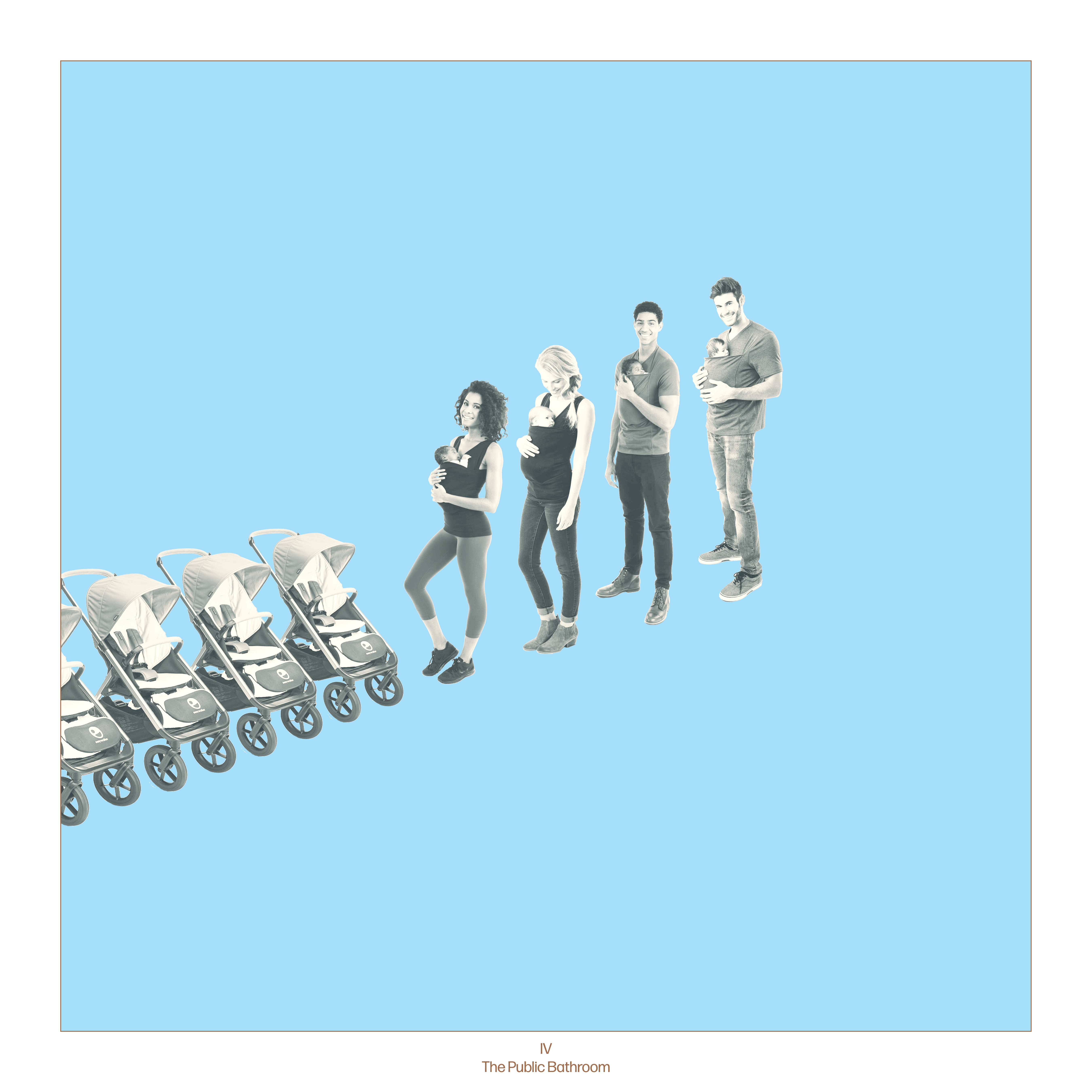
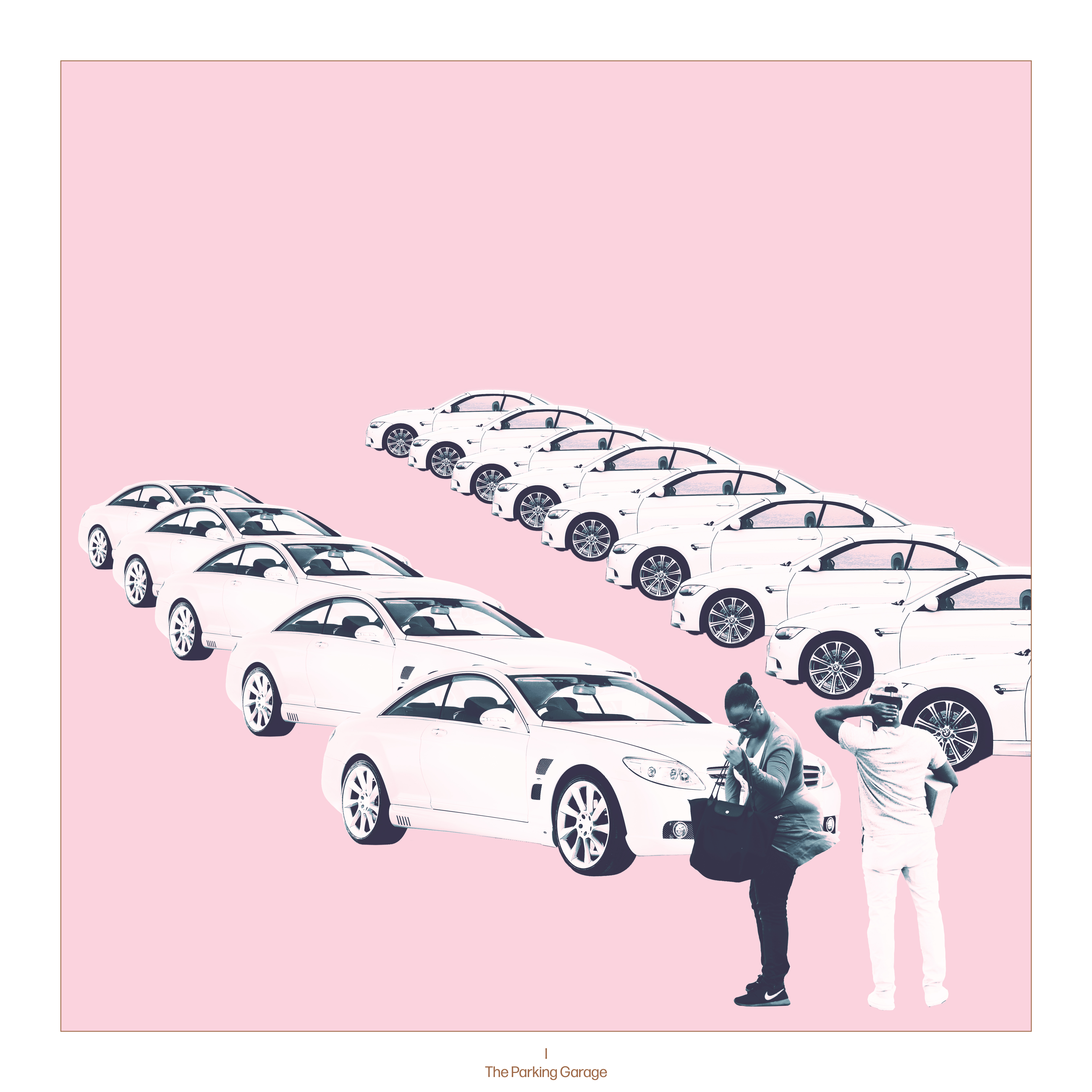
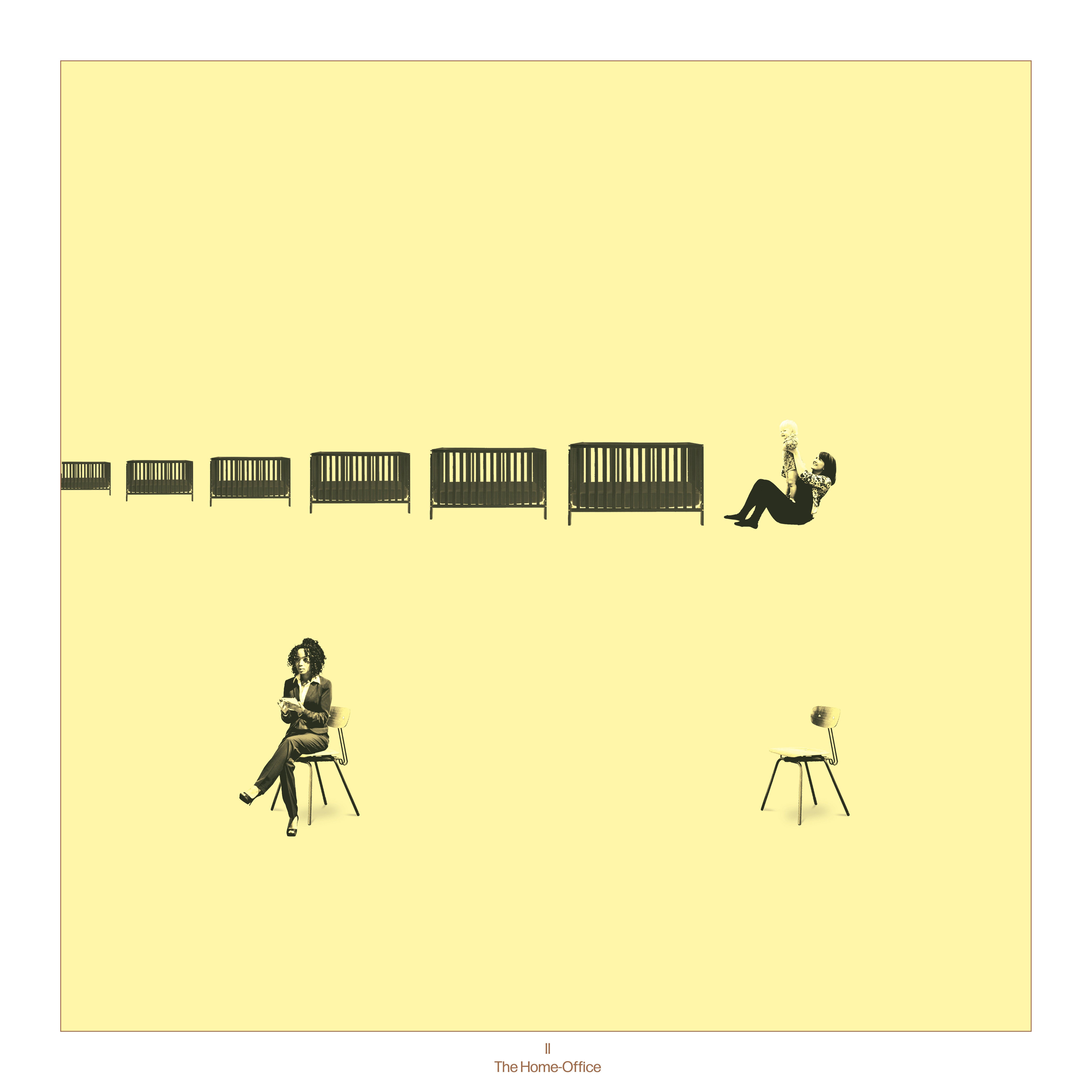
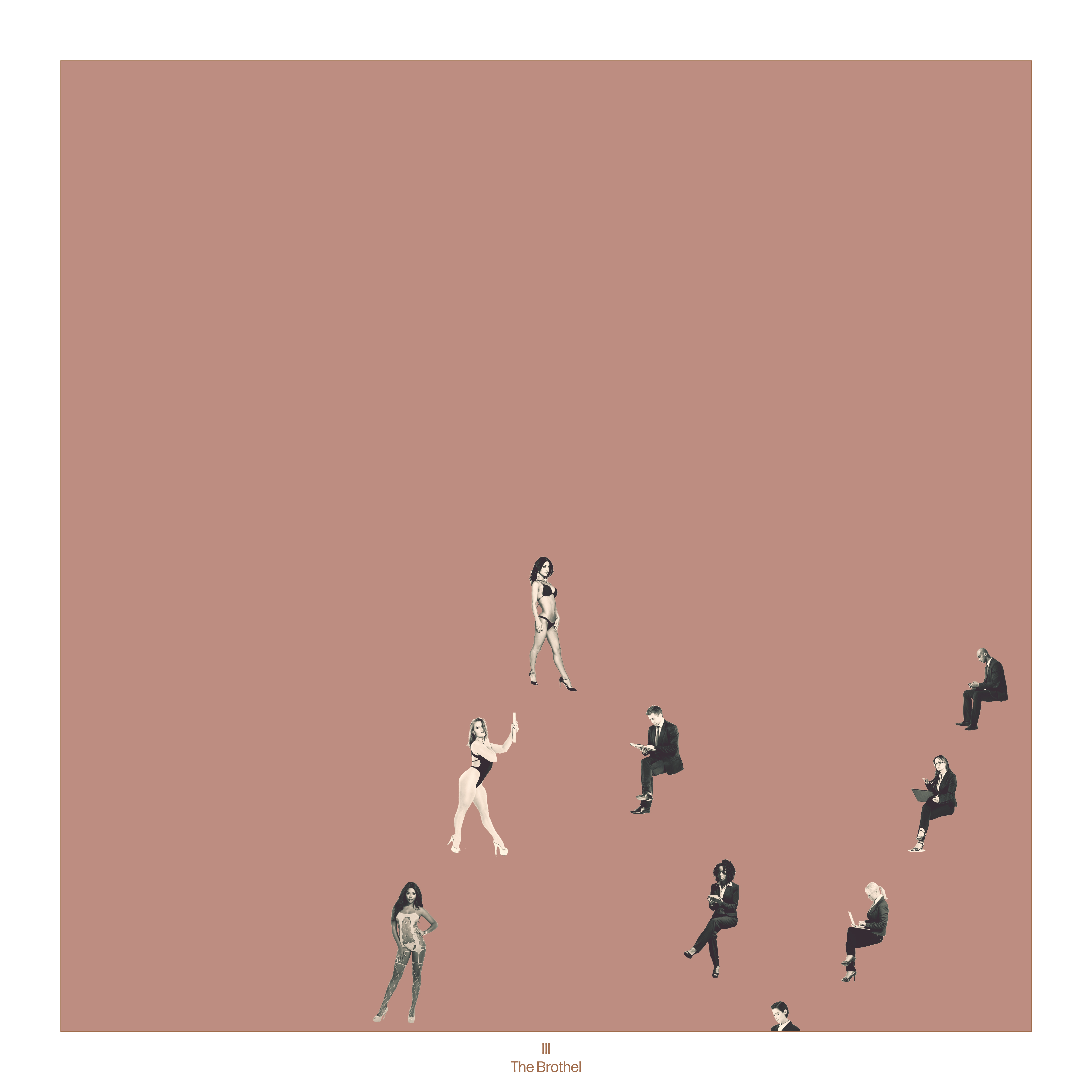
DATE: 2017
Exhibited at Front/Space Gallery, Kansas City, MO
Curated by Bad Little Brother
Gallery photos courtesy of Timothy Amundson, via Front/Space Gallery
Exhibited at Front/Space Gallery, Kansas City, MO
Curated by Bad Little Brother
Gallery photos courtesy of Timothy Amundson, via Front/Space Gallery
Gendered Generic seeks to unpack the ways gender standards are baked into our everyday environments by presenting a set of four found spaces. These spaces are real but they are not unique, and they represent a sampling from a larger collection of familiar places. Each case is represented through a pair of drawings that establishes an uncanny separation between an architectural stage set and the bodies and objects that inhabit it. The hierarchies of space and hierarchies of bodies must simultaneously coexist but also
complicate one another by revealing their troublesome incongruities.
The Parking Garage.
Gender stereotypes related to the practices of driving and parking span continents and cultures. In recent years, designated spaces for “female-only” parking have been documented in a handful of countries including South
Korea, China, and Germany. The reason for implementing this amenity varies and ranges from concerns about safety to concerns about ability. In many cases, the spaces are double the size of a standard space, further apart better lit, and detailed with pink paint.
The Home-Office.
As “work” continues to liberate itself from the brick-and-mortar office space, the ability to work from anywhere has enabled a flexibility that has helped democratize workforce demographics. However, tax and zoning regulation governing the legitimacy of a workplace lag behind this important cultural shift. In the Netherlands for example, tax laws require a home-office to have a separate exterior door, which tends to be architecturally-incongruous with standard housing types. Disguised as inocuous legal jargon, these regulations continue to delegitmize work performed in domestic spaces.
The Brothel.
Embedded in the extensive lore surrounding the Amsterdam Red Light District is a history of brothel taxation. Much like zoning diagrams regulating setbacks and building mass, the formula for calculating taxes on a brothel establishment previously included the distance between its female
sex workers and the street. The incentivization of distancing bodies from the public domain creates a spatial inversal of urban values and exposes scary correlation between bodies, work, and economics.
The Public Bathroom.
Perhaps more than any other generic space, public bathrooms come heavily coded with signs and symbols. Through repeated social and cultural conditioning, the signified is reified while the signifier fades beyond conscious acknowledgement. Most proceed unharmed by these normalized signs and symbols, while others deal with the daily micro-aggressions embodied in these spaces. A troublesome correlation between something
as personal and complex as gender identity to something as human and mundane as changing a child is established and legitimized through ou collective disregard for spaces like the public bathroom.
![]()
![]()
complicate one another by revealing their troublesome incongruities.
The Parking Garage.
Gender stereotypes related to the practices of driving and parking span continents and cultures. In recent years, designated spaces for “female-only” parking have been documented in a handful of countries including South
Korea, China, and Germany. The reason for implementing this amenity varies and ranges from concerns about safety to concerns about ability. In many cases, the spaces are double the size of a standard space, further apart better lit, and detailed with pink paint.
The Home-Office.
As “work” continues to liberate itself from the brick-and-mortar office space, the ability to work from anywhere has enabled a flexibility that has helped democratize workforce demographics. However, tax and zoning regulation governing the legitimacy of a workplace lag behind this important cultural shift. In the Netherlands for example, tax laws require a home-office to have a separate exterior door, which tends to be architecturally-incongruous with standard housing types. Disguised as inocuous legal jargon, these regulations continue to delegitmize work performed in domestic spaces.
The Brothel.
Embedded in the extensive lore surrounding the Amsterdam Red Light District is a history of brothel taxation. Much like zoning diagrams regulating setbacks and building mass, the formula for calculating taxes on a brothel establishment previously included the distance between its female
sex workers and the street. The incentivization of distancing bodies from the public domain creates a spatial inversal of urban values and exposes scary correlation between bodies, work, and economics.
The Public Bathroom.
Perhaps more than any other generic space, public bathrooms come heavily coded with signs and symbols. Through repeated social and cultural conditioning, the signified is reified while the signifier fades beyond conscious acknowledgement. Most proceed unharmed by these normalized signs and symbols, while others deal with the daily micro-aggressions embodied in these spaces. A troublesome correlation between something
as personal and complex as gender identity to something as human and mundane as changing a child is established and legitimized through ou collective disregard for spaces like the public bathroom.

